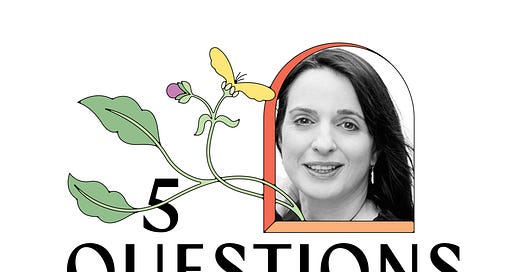“The age of psychedelic inequity”: 5 Questions for author Alissa Quart
Quart discusses her experience applying to a MAPS MDMA clinical trial, and navigating the psychedelic underground.
As a twenty-something in the 1990s, Alissa Quart had tried psychedelics as party drugs, but it wasn’t until she developed a sleep disorder that she became interested in them again. Quart is a sleepwalker, and no doctor has been able to tell her definitively whether the right intervention would be neurological or emotional. Several friends suggested psychedelics might help, so Quart began investigating her options. That led her to apply to a MAPS MDMA clinical trial, and, eventually, to the psychedelic underground. She wrote about her experience in a piece co-published by The Nation and the Economic Hardship Reporting Project, a journalism non-profit of which Quart is the executive director. Quart is also the author of five non-fiction books, including Squeezed: Why Our Families Can’t Afford America and Bootstrapped: Liberating Ourselves from the American Dream.
The Microdose spoke with Quart about her experience.
Why did you decide to apply to a MDMA-assisted therapy clinical trial?
Friends, including therapists and a drugs reporter, said that maybe psychedelics would be helpful for me. I couldn’t afford something like an ecstasy party, and also because I wanted to use it for a medical reason, I didn't really want to do it in a party context anyway. I knew I wanted to go through an official channel and have multiple hours-long sessions.
What was the application process like?
This was during the pandemic, so much of it was done over the phone. It was pretty intense — I filled out a lot of forms, and even visited their safe house where the treatment would be done. By my last visit with them, we were having very logistical questions about what would be permissible during the 7 or 8 hours of treatment: they were telling me about the menus I would order food off of, and because I’m a writer, I wanted to know if I could journal.
In your recent piece, you write that you were not chosen for the study, calling it “a rejection that was more crushing than I would have predicted.” Do you know why you were rejected, and what made it so crushing?
Have you ever experienced a situation where you’re imagining a whole other existence — the self you could have been if things had worked out? This happens in other areas of life, like a home you’ll buy or a job you’ll have. You start getting attached to the idea, and you begin mentally preparing for it. That’s what happened with me and this clinical trial; because we had already started having these logistical conversations, and I’d already started planning things out like childcare for when I’d be in these all-day sessions, I grew attached to the idea that I’d be in the trial. So I was surprised at how upset I was when they told me I wasn’t chosen.
They didn’t tell me why — I don’t think they’re allowed to — but I kind of got the impression that I wasn’t messed up enough, or that my situation wasn’t straightforward enough: my sleep symptoms were not typical, and I still was functioning in society, like I am able to hold a job.
After being rejected, you turned to the underground. What was your experience like?
It’s a weird parallel, but earlier in my career I produced a bunch of films on abortion and this reminded me of that. You have to go to these sanctuary states in order to access a service, there are travel fees, you have to know the right networks of people. I made a bunch of calls to therapists who said I’d have to bring my own substances, and then there was this whole other layer of finding drugs and making sure they were safe.
The whole process made me think that you almost need to have an equivalent to a social worker in these cases. We need people who can explain the system involved, just as social workers explain, say, elder care or daycare.
You write and report on equity issues. In what ways is psychedelic equity unique versus just a mirror of other class divides in society?
Given the expense and access to knowledge about these drugs, it’s similar to navigating other societal structures — for instance, the knowledge and sometimes cost to get kids into the right daycare or public school. But some parts of this feel even more exaggerated with psychedelics: Who knows how to get into a study? Who knows that there are psilocybin programs in Oregon and Colorado? Who can afford a plane ticket? Just operationally, the road to access is not clear to many people, let alone the expense. It’s also about time; if you’re having trouble paying rent, how could you be thinking about spending hours of your day in a session?
This interview has been edited and condensed for clarity and length.







